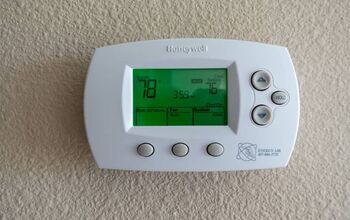Standard Dining Room Table Dimensions [for 4, 6, 8, 10 and 12 People]

The dining table is one of the primary focal points in any home. It is here where your family and friends meet to share laughs, stories, and relish in home-cooked meals. Choosing the right dining room table means selecting the proper shape and dimension to suit your home and the amount of people who will be seated there on a daily basis.
Proper dining table shapes and dimensions can also help to set the overall mood of the space. A circular shape can exude coziness while rectangular is more refined. Additionally, square and oval pieces can help to create a calm mix of the two. Overall, when selecting the necessary dining table shape and size, you should be guided by the room’s décor, dimensions, and the requirements of your family.
In your search for the perfect dining room table, you should take precise measurements before you purchase, as dimensions will vary between manufacturers. As a general rule of thumb, leave 36 inches between your walls and the table to allow enough space for foot traffic and chairs. For rectangular tables, you should also allow a minimum of 23 inches between chairs for comfortability and ample space among each diner.
When you blend a properly shaped and size dining table with interior design and space that complements, the room will function and flow effortlessly. Let’s explore the standard dimensions for dining tables based on shape and dining room size.
Dining Table Rules of Thumb
If you’ve found a dining table that you feel will really suit your dining area and your family’s needs, you need to determine if it will actually fit in the intended space in your home. Examine the following basic rules of thumb to help you conclude whether or not the table will fit in your kitchen, dining room, or other dining location.
- Allow 36 inches, or 3 feet, of clearance on each side of the dining table. This is the precise amount of space required for the chairs to be able to pull out from the table, or to have enough space to squeeze by when people are seated.
- Consider the other furniture in the room. If you have a bar cart, buffet, or china cabinet against the wall, make sure that you measure 3 feet out from that piece of furniture as well.
- If you desire versatility, choose a table that extends with leaves. This will allow you to seat more people when you have guests over, but still make the room spacious enough when it’s just your family.
- For small spaces, square rooms, or dual-purpose spaces, consider opting for a round pedestal table. These types of tables take up much less space, are easier to maneuver around, and can even be a great design conversation piece.
- For exceptionally tight spaces, you can create a corner dining nook with benches line up against the walls. With this option, you can even slide the benches under the table for more space when it’s not in use.
- Allow for at least 2 feet between each person at a rectangular table. You can always squeeze in more chairs as needed, but this will create the most comfortable dining space.
Understanding Standard Dining Table Dimensions
Just like most furniture, dining tables are constructed to standard measurements. While the styles will certainly vary, you’ll find that there is very little difference when it comes to dining table height.
To help you determine the standard dining table measurements that are suitable for your dining space, there are a number of factors that can aid your decision. First, how large of a space do you have to work with? How many people will be seated around your dining table on a daily basis? You may also want to consider the shape when determining the best size for your home.
While the industry standards certainly serve as a guideline and recommendation, you should always take careful measurements of the room and any furniture that you plan to introduce into it before making a purchase. Never assume that all tables that seat four people will be the same size across manufacturers. In fact, a mere two inches can make a major difference when furnishing a smaller sized dining room.
Standard Rectangular Dining Table Dimensions
In general, the majority of dining rooms are rectangular, which lends itself to the appeal of a rectangular table. When compared to other dining table shapes, rectangular is the most common choice among homeowners. While they tend to take up the most space, they are the ideal choice for large families or when big gatherings occur.
The standard rectangular dining room table size when seating four people is 36 inches wide by 48 inches long. This sizing will comfortably fit a small family of four and allow for plenty of elbow room between each person seated. To accommodate more people, the length of the table increases. The following are the standard dining table measurements for seating four, six, eight, ten, twelve people.
- Four people: 36 inches wide by 48 inches long
- Four to six people: 36 inches wide by 60 inches long
- Six to eight people: 36 inches wide by 78 inches long
- Eight to ten people: 36 inches wide by 10 feet long
- Ten to twelve people: 36 inches wide by 12 feet long
While these are the standard sizes, the actual width of a rectangular table should be between 36 and 42 inches wide. Anything narrower than 36 inches will likely cause space issues. However, if you desire a narrow rectangular table, you’ll likely need to put the food out on a buffet or sideboard to allow for enough space on the table.
Standard Round Dining Table Dimensions
Choosing a round table for your dining area can help you save on space and create a cozy atmosphere. Round tables create a nice environment for easy conversation with every seated at the table. However, if you tend to entertain a lot of people on a regular basis, round may not be the best shape for your home.
Diameter is the key measurement when it comes to round tables. The standard round dining table sizes are as follows:
- Four people: 36- to 44-inches in diameter
- Four to six people: 44- to 54-inches in diameter
- Six to eight people: 54- to 72-inches in diameter
When it comes to large gatherings, a large round table means that you will most certainly have to shout over a big expanse to be heard. In fact, the majority of dining rooms are not large enough to fit large round dining tables. Although, if you prefer a round table over another choice and you plan on occasionally seating a large number of people, purchase a round table with an extension leaf instead.
The leaf will allow the table to extend into an oval shape to provide additional space for guests. Overall, round tables create an intimate ambiance and are the perfect choice for small families or couples with limited space in their homes.
Standard Oval Dining Table Dimensions
With both circle and oval tables, no corners make for easy navigation in close quarters and a very clear view of all the diners at the table. Oval dining tables are generally used for small rooms that still require space for four or more diners. They provide approximately the same amount of surface area as rectangular tables, while occupying much less visual space.
Just like round tables, those who dine at an oval table can be placed around the entire circumference and are not limited by corners. Here are the standard measurements for oval tables:
- Begin with a 36- to 44-inch diameter table. This will seat two to four people comfortably and you can use leaves to extend it when needed.
- Four to six people: a minimum of 36-inches in diameter by 56 inches long
- Six to eight people: a minimum of 36 inches in diameter by 72 inches long
- Eight to ten people: a minimum of 26 inches in diameter by 84 inches long
Round tables with leaves or a drop-leaf design can also be a great way to reduce its size and have more dining flexibility. However, when purchasing a table with leaves, make sure that the room has enough space to adapt to the change in dining table size.
Standard Square Dining Table Dimensions
The final dining table shape to discuss is square, perfect for creating a bistro feel in your dining area. Square tables work great in homes that seek a more contemporary aesthetic. The dimensions of these tables are best suited for box-shaped rooms with a limited amount of space. Overall, square dining tables are generally intended for a small number of people seated.
The square shame has many of the same benefits and drawbacks that are associated with round tables. Both are great when you want diners seated close together for conversation and an intimate meal. The standard square dining table measurements are as follows:
- Four people: 33- to 36-inches square
- Six people: 60-inches square
If you’re planning on hosting more than four or six people, your best bet is to purchase a square table that will extend into a rectangular shape with leaves. Additionally, square tables are not appropriate for narrow dining spaces.
How to Determine the Right Size Table for Your Space
Now that you understand the standard shapes and sizes of dining room tables, you need to know how to figure out what size will work best in your home. Follow the steps below in order to determine the correct size table for your dining space.
- Carefully measure both the length and the width of your dining area.
- Individually subtract six feet from the width and the length. This will allow for the necessary three feet of clearance between the walls and table on all sides.
- The resulting numbers will give you the maximum suitable dining table size for your space.
For example, if your dining space is 12 feet by 9 ½ feet, the maximum size dining table you can purchase is 72 inches by 40 inches.
Standard Dining Table Height
Typical table size and shape aren’t the only factors to consider when you’re on your search for the perfect dining table. You also need to factor in dinging table height. While tables will have different sizes and shapes, the standard height of a dining table will generally stay pretty consistent.
In order for the table to function efficiently, it needs to be high enough so that there is enough space above the knees of those who are seated around it. For maximum comfortability while dining, the table should not be too high. As a result, most dining tables are between 28 and 30 inches from the floor to the surface of the table.
While there are other heights available, you’ll find the widest selection of styles, finishes, and sizes of chairs and tables at thirty inches. Since it is considered to be the most conventional route, this height can be your best option to achieve a formal look. However, due to the large number of options, there are plenty of casual and contemporary choices available as well.
Counter Height Tables
If you’re looking for something that is a departure from the norm and a very unique option for your space, consider a counter height table. Counter height tables sit at around 36 inches high and are around the same height as your standard kitchen countertops.
This table is the ideal height for both sitting and standing, and stool seating offer easy maneuverability when compared to conventional chairs. Over the last couple of years, counter height tables have grown in popularity. For families, it creates a comfortable area for kids to do homework or crafts.
Bar Height Tables
To achieve the most casual dining experience in your home, purchase a bar height table set. At 42 inches, these tables sit at around the same height as most restaurant bars. However, they are the least common of all the table heights and you will have fewer styles to choose from.
Bar height tables are generally designed to seat two to four people and work great for small apartment dining or breakfast nooks. They can give your home a relaxed diner or pub atmosphere while providing a very conversational environment.
Standard Dining Chair Sizes
Another important factor to consider when you’re choosing the right table for your dining space is the type of dining chairs you intend to use. Most standard dining chairs, also known as side chairs, are arm-less. This makes them exceptionally adaptable to the space and they can be used for a variety of different functions.
For this reason, side chairs have become the most popular type of chair for all positions at the dining table, including the head. With that said, here are the standard measurements for dining chairs:
- The average dining chair seat height ranges from 16 to 22 inches.
- The average dining chair seat width is 18 inches in the front and about 15.5 inches in the back.
- The average dining chair seat depth is between 16 and 18 inches.
When it comes to dining chairs, a good rule of thumb to follow is to allow for at least 12 inches of space between the seat and the table itself. This should allow sufficient legroom for those seated at the table.
Standard Buffet Table & Sideboard Sizes
A sideboard or buffet table is another common piece of a dining set that you may want to include in your dining room set up. These pieces of furniture are long, low in stature, and traditionally used for storing and displaying a variety of items. Though, they may also be used when extra space is needed to serve food.
It is often difficult to determine the appropriate size buffet table for a space, as they must be in proportion to your dining table. That said, consider these standard measurements for sideboards:
- The average depth of a buffet table is between 20 and 22 inches. You should allow for at least 24 inches of space between a sideboard and other items in the room.
- The average length of a buffet table is 60 inches. This measurement is ideal for dining tables that are either equal or greater in length, as the goal is for the sideboard to not overpower the dining table.
- The average height of a buffet table is 34 to 36 inches. This height is comfortable for serving food. It is also slightly taller than a standard dining room table, allowing for ideal proportions.
Related Guides

Jessica considers herself a home improvement and design enthusiast. She grew up surrounded by constant home improvement projects and owes most of what she knows to helping her dad renovate her childhood home. Being a Los Angeles resident, Jessica spends a lot of her time looking for her next DIY project and sharing her love for home design.
More by Jessica Stone



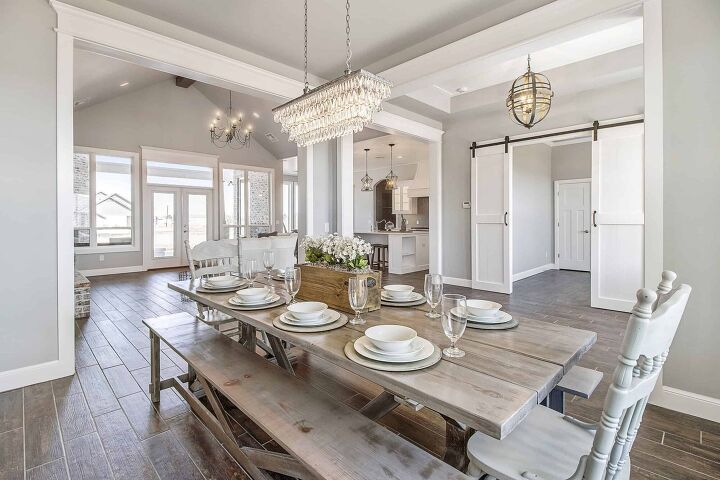











![The 5 Best Angle Grinders – [2022 Reviews & Buyer's Guide]](https://cdn-fastly.upgradedhome.com/media/2023/07/31/9071326/the-5-best-angle-grinders-2022-reviews-buyer-s-guide.jpg?size=350x220)

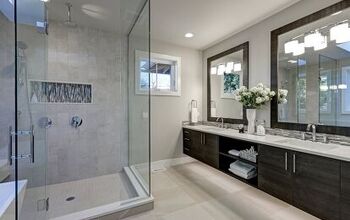


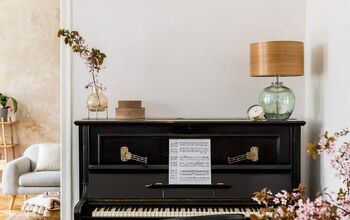


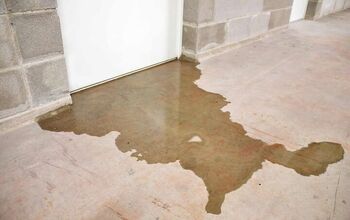



![10 Most Dangerous Neighborhoods in Baltimore [Updated]](https://cdn-fastly.upgradedhome.com/media/2023/07/31/9075655/10-most-dangerous-neighborhoods-in-baltimore-updated.jpg?size=350x220)


